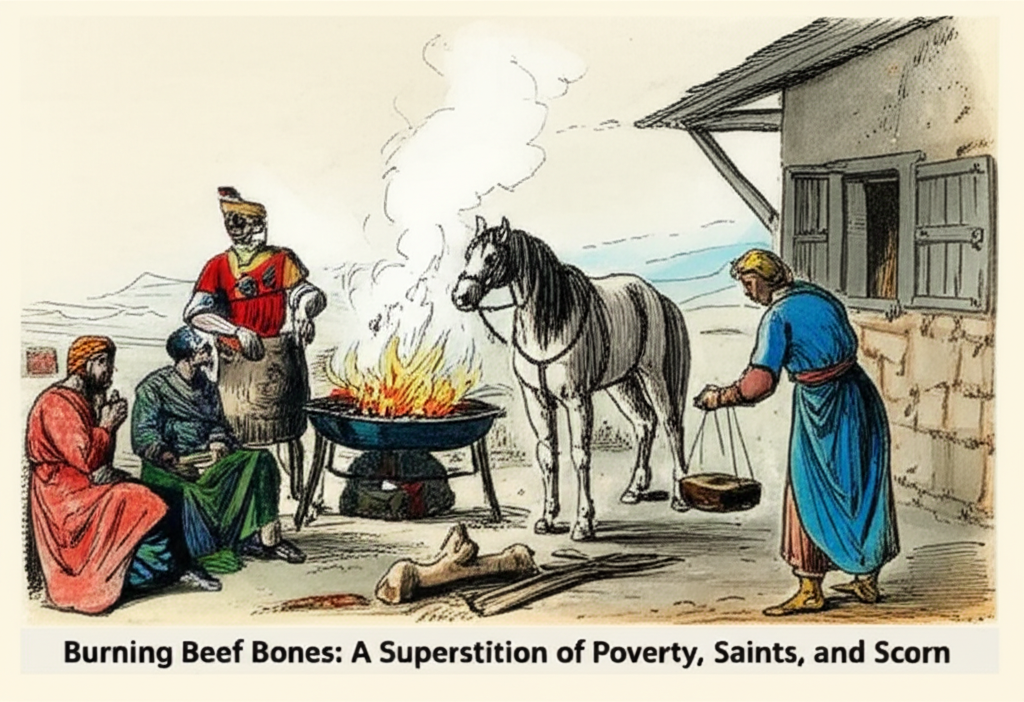
The superstition that burning beef bones brings bad luck is a longstanding belief rooted in historical events, religious figures, and practical household economics. This seemingly simple kitchen taboo carries a weight of symbolism connected to poverty, martyrdom, and resourcefulness.
Historical Background: The origins of this superstition are somewhat obscure, but they are potentially linked to the story of St. Lawrence, a revered martyr of the Roman Church. St. Lawrence, who lived in the 3rd century AD, was responsible for the care of the poor and needy. In 258 AD, the Prefect of Rome, suspecting the Church possessed a hidden fortune, demanded that St. Lawrence hand over its treasures. Instead, St. Lawrence presented the destitute people of Rome, those whom the Church aided. Enraged, the Prefect ordered St. Lawrence’s slow and agonizing execution by being burned alive on a grill. This event casts a shadow of suffering and loss associated with the act of burning, potentially transferring to the idea of burning beef bones.
Cultural Beliefs: An early variation of the superstition is found in the Distaff Gospels, a collection of women’s wisdom published in 1507. This version, directly connecting to St. Lawrence, states: ‘He that dothe not caste, or suffreth not to caste bones in the fyre shall not haue the toothache for ye honour of saynt Laurens.’ This suggests a preventive aspect to the belief – refraining from burning bones, especially in honor of St. Lawrence, could ward off toothaches. This highlights the intertwining of religious devotion and practical health concerns.
Evolution of the Superstition: The modern form of the superstition, specifically associating the burning of beef bones with impending sorrow due to poverty, appeared in print in 1840. It was included in Mother Bunch’s Golden Fortune Teller, a publication described as an oracle of love, marriage, and fate. This iteration expands the bone-burning taboo, adding that burning fish or poultry bones foretells scandal, while burning pork or veal bones will inflict pain upon the burner’s bones. This demonstrates an evolution from a religiously motivated practice to a general omen of misfortune, affecting various aspects of life and health.
Modern Interpretations: While the superstition of not burning beef bones may not be widely practiced today, it serves as a reminder of a time when resources were scarce and reverence for religious figures was deeply ingrained in daily life. For medieval and Renaissance homemakers, avoiding burning bones was not only a matter of respect for St. Lawrence but also a practical consideration. Cows were valuable assets, and their bones were often repurposed into tools, weapons, fasteners, and sewing implements. Destroying a potential resource through burning was thus seen as wasteful and unlucky, potentially leading to future hardship. In modern times, the superstition serves as a glimpse into the past, highlighting the intersection of religion, resourcefulness, and folk belief in shaping people’s lives.